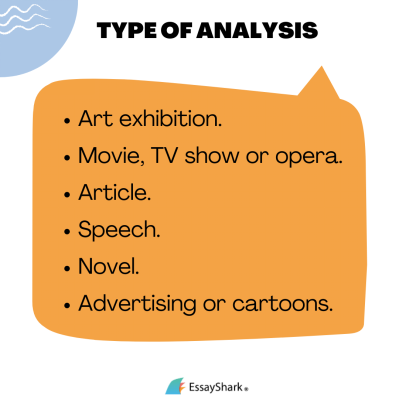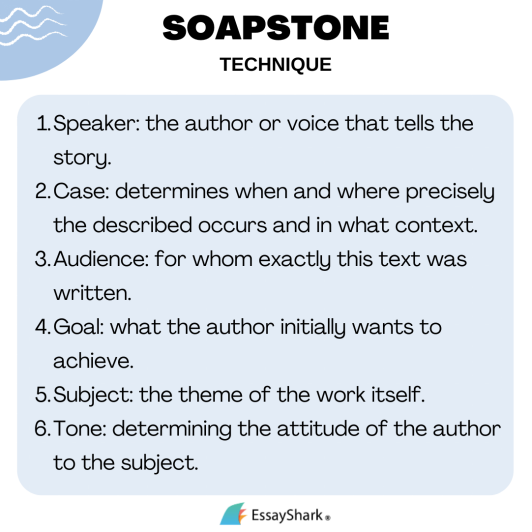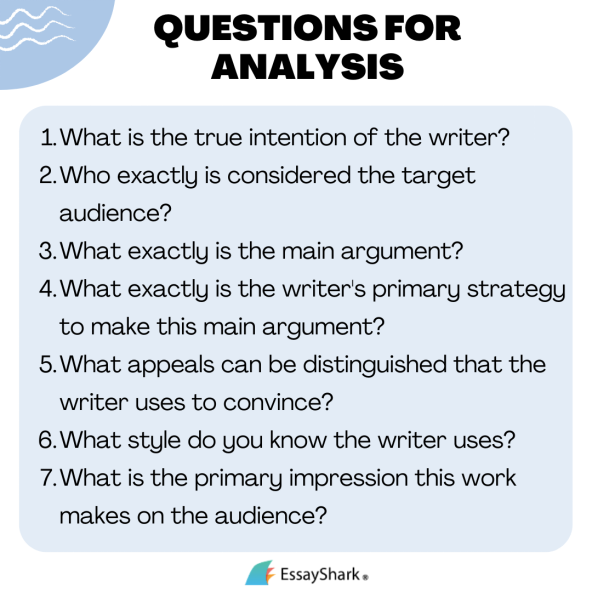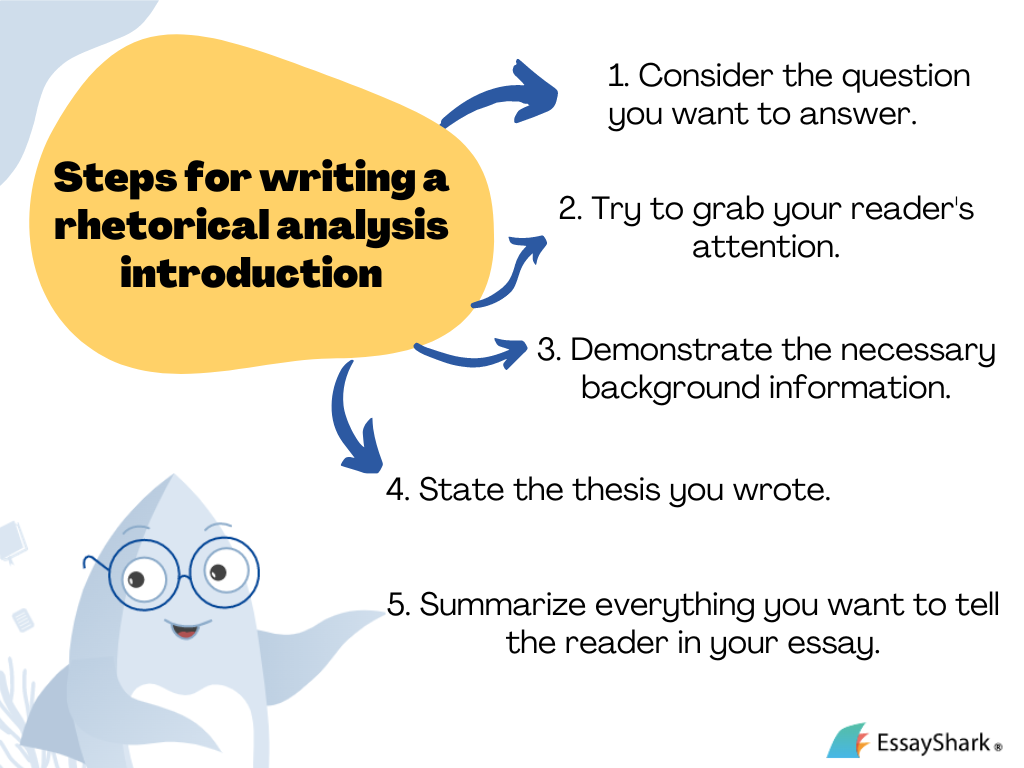Before you start a rhetorical analysis, you need to understand what it is, and we will help you with this. The type of writing as a rhetorical analysis explores the author’s technique and his idea, not the text of the work that fell under the study. In itself, rhetoric is a part of the art that teaches how to convince opponents correctly and reason in the direction of analysis.
Table of contents
What is a rhetorical analysis?
Rhetorical analysis is a type of essay often used in academic assignments, in which the text itself is considered mainly from the point of view of rhetoric. This means that when writing an essay, the student should be less concerned with what the author says than how he says it. Consider in the paper the author’s goals, techniques, and appeal to the audience.
It is found most often in AP exams or composition. While professionals and students quite often use it to analyze texts. You can determine the purpose of the writer’s work itself and get the desired result if you ask yourself a specific question about the job. In this post, we will describe exactly how you can write a rhetorical analysis with a few simple steps that will take you along the path of composing an analysis.
Content to analyze using rhetorical analysis
Also, to clarify exactly where you can apply this type of analysis, we have written several examples you can quickly analyze using rhetorical analysis.

Ways to start a rhetorical analysis
Students are often interested in how to start a rhetorical analysis essay because everyone, at least once during their studies, had to deal with the types of written assignments. Suppose it is difficult to imagine where exactly to start your analysis. In that case, you can start with how exactly the writer positions his argument and whether it is successful. After that, you will need to emphasize specific methods that the author uses to convince the reader or viewer of the correctness of his opinion. Of course, you can apply for essay help at any time and see how to create this type of paper using an example of the work done. But it is also helpful for you to understand what rhetorical analysis consists of, and we can distinguish three main components of it:
- Author.
- The target audience.
- Send.
Describing ways to start a rhetorical analysis, we must mention what the text of the study includes, which is usually only five paragraphs divided into three parts. These parts have an introduction, three key sections, and, of course, a conclusion. First, to successfully write your work, you need to break it down into parts and, at the same time, describe exactly how they affect the final result. Most often, the final goal of the author can be entertainment, persuasion, or an informational message. Use the steps we have outlined, and your path to developing rhetorical analysis will be simple and easy.
1. Find information.
It will be beneficial for you to learn about the SOAPSTone technique, which will help you determine all the necessary components of your chosen work and then plan your analysis immediately. SOAPSTone consists of an abbreviation that is most often used specifically in literary analysis, and it stands for “Speaker,” “Incident,” “Audience,” “Purpose,” “Theme,” and “Tone.”

2. Familiarize yourself with the appeal.
Authors always use specific appeals, often known as persuasion strategies, and are designed to evoke the expected reaction to their work in readers. There are only three appeals:
- Ethos: Appeals considered ethical can build their trust in the author, such as mentioning his experience and early work.
- Logos: refers to logical appeals, such as evidence and data for argumentation.
- Paphos: considered pathetic appeals aimed at exerting an emotional impact on the audience.
3. Define Style Options and Details.
Having learned how to begin a rhetorical analysis, you will need tools the author can implement to see the reader’s reaction to the writer. The tools we describe include:
- Choice of words.
- Word order.
- Tone.
- Repetition.
- Imagery.
- Analogies.
- Figurative language.
4. Analyze.
Ask yourself a few questions about the information you found. Answering them will help you flesh out the author’s reasons for making confident choices and how well they underline his arguments. Be focused on what exactly the author is doing and why. Example questions include:

5. Write an introduction
Your rhetorical analysis introduction should be in one clear and short paragraph. In it, you should concisely demonstrate the main ideas you want to discuss in your essay. It is also essential to provide brief information about the writer, the relevance of his writing, and the message he is trying to convey.
6. Write your thesis.
Your thesis statement should be just one sentence at the end of your previous introduction, in which you summarize the argument. The argument should be related to your attitude towards the choice of the author’s strategy. The thesis has always been considered one of the essential parts of any essay.
7. Compose the main text.
Think of about three key paragraphs that will support your thesis. Of course, the rhetorical analysis introduction is critical, but how the other paragraphs are composed will also affect the final result. Each of your sections should aim at a new and specific topic. It will be convenient for you to think over your paragraphs concerning appeals (examples of ethos, pathos, and logos) and their usefulness in the methods the writer implemented. It is also essential to consider their chronology and effectiveness in influencing the audience. Regardless of how you organize each of your paragraphs, you need to underline the text of the quote, facts, emotions, examples, and data.
8. Write your conclusion.
Of course, it is essential to start a rhetorical analysis correctly, but in the introduction, you need to be on alert. You should duplicate the thesis and clarify the main points from your paper in a very concise manner. Also, explain why your argument is essential and if it matters, and remember to include a call to action in case you need it.
How to write a rhetorical analysis introduction
The introduction for rhetorical analysis is of great importance for the entire essay and should be given special attention. Introductory paragraphs are critical, regardless of the type of document, as they can help:
- Determine the theme and structure for your paper.
- Engage the audience to continue reading.
- Ask a fundamental question.
- Summarize up-to-date information regarding the main item of the work.
We have prepared simple steps to make writing a rhetorical analysis introduction easier and simple to follow.

Agree that start a rhetorical analysis is much easier when you know how to properly work on each of the necessary fragments of this type of work.
Rhetorical analysis introduction examples
With the help of a quality rhetorical analysis introduction example written by professionals, it will be easier for you to work on your assignment. It has long been known that it is by looking at an example that you can see the right path and simplify your work on any task. Examples expound more and make it easier to understand the said task. The authors of our service worked hard so that you could save yourself more time and, using the example of rhetorical analysis introduction, quickly completed the planned work.
Rhetorical analysis introduction sample 1
“The Right Stuff, written by David Suzuki, stands out from other papers with an interesting and, at the same time, informative style of the author. It was possible to carry out a chain of the author’s works, starting with the well-known work “The Nature of Things.” Does the writer start with a fascinating suggestion, “Is there life after school?” which sounds like: “impressions formed in high school are more vivid and indelible than those formed in any other period of life.”
Rhetorical analysis introduction sample 2
Rhetorical analysis introduction sample 3
Rhetorical analysis writing assistance from experts
On EssayShark professional service, you can find high-quality advice and examples and help with your rhetorical analysis. Turning to us for support, you will find many authors ready to create a fantastic task in the time you need and, at the same time, receive all the necessary quality and safety guarantees. Our experts are professionals in all areas and deliver quality work on time. Go to the order page to read more details about cooperation with us.








